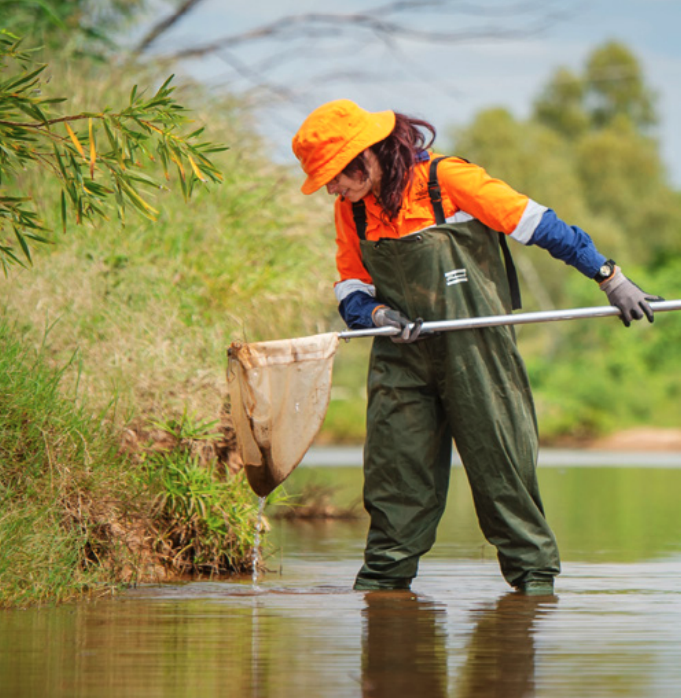Glencore plc, (LSE: GLEN) a leading global resource company, recently released its highly anticipated 2022 Sustainability Report, providing a comprehensive overview of its efforts to prioritise safety, health, and sustainable water management.
Enhancing safety and health performance
Glencore’s first priority is the health and well-being of its workforce.
The report outlines the company’s strategic ambition to create a workplace free from fatalities and serious injuries, emphasising a strong safety culture throughout its operations.
One notable initiative is the implementation of SafeWork 2.0, a comprehensive approach to eliminating fatalities.
This program sets minimum expectations and mandatory protocols, such as Life-Saving Behaviours, to be implemented across all industrial assets.
Through visible leadership and consistent application, SafeWork drives a culture of safe operating discipline, ensuring that every individual takes responsibility for their safety and the safety of others.
The report highlights significant progress made by Glencore’s industrial assets in implementing SafeWork 2.0.
Notably, over 90% of industrial assets have completed Fatal Hazard Protocols audits, a crucial step in identifying potential risks and preventing incidents.
Additionally, Glencore established Glencore Exposure Action Levels (GEALs) to prioritise health hazards and strengthen risk management practices.
With a focus on continuous improvement, Glencore utilises data analysis and incident investigations to identify trends and develop preventative measures.
The company has also invested in technology, such as fatigue monitoring systems, to enhance safety measures and reduce risks associated with vehicle interactions.
Sustainable water management
Glencore recognises the importance of responsible water management, particularly in regions facing water scarcity.
The report highlights Glencore’s efforts to maximise water efficiency, minimise environmental impact, and collaborate with local stakeholders.
To ensure sustainable water usage, Glencore requires all industrial assets to develop water management plans based on catchment-specific context.
Over 70% of industrial assets have already completed the development of these plans and set local water targets.
By aligning with ICMM’s Water Stewardship Position Statement, Glencore aims to protect shared water resources and mitigate potential impacts on local communities.
The company’s risk-based approach enables the identification and implementation of water-saving opportunities.
Through comprehensive assessments of material water-related risks, Glencore is developing strategies to reduce its water footprint and improve performance.
These actions demonstrate Glencore’s commitment to environmental stewardship and its contribution to the collective effort in advancing responsible water management within the industry.
Collaboration and continuous improvement
Glencore recognises the value of collaboration in driving sustainable practices.
The company actively participates in industry initiatives, such as ICMM’s water working group, to align reporting requirements and share best practices.
By leveraging collective knowledge and expertise, Glencore contributes to industry-wide improvements in water stewardship.
While Glencore’s 2022 Sustainability Report highlights significant achievements, the company acknowledges the need for ongoing efforts and continuous improvement.
It emphasises the importance of addressing identified gaps, updating protocols based on learnings, and implementing actions to further enhance safety, health, and water management practices.
Committed to ESG principles
Glencore’s 2022 Sustainability Report demonstrates its unwavering commitment to safety, health, and sustainable water management in resource operations.
Through initiatives like SafeWork 2.0, Glencore priorities the well-being of its employees and creates a strong safety culture.
The company’s comprehensive water management approach, including the development of catchment-specific plans and water-saving strategies, exemplifies its dedication to responsible water usage.
As Glencore continues to prioritise safety, health and sustainable water management, it sets a benchmark for the industry, showcasing the importance of integrating these practices into core business operations.
The report also highlights Glencore’s proactive approach to risk management.
By conducting comprehensive assessments and implementing preventative measures, the company strives to eliminate incidents and continuously improve its safety performance.
Through the utilisation of technology, such as fatigue monitoring systems and collision awareness technology, Glencore enhances operational safety and reduces potential risks associated with vehicle interactions.
Furthermore, Glencore’s commitment to collaboration and transparency is evident in its participation in industry initiatives and alignment with global standards.
By working together with stakeholders and sharing best practices, Glencore contributes to collective efforts in advancing responsible resource extraction.
Looking ahead, Glencore aims to further strengthen its safety, health, and water management practices.
The company plans to update protocols based on learnings and continue the implementation of its Environment Standard, which supports sustainable water management.
By setting local targets and implementing actions to reduce impacts, Glencore strives to improve its water performance and contribute to the preservation of this vital resource.
Glencore’s 2022 Sustainability Report demonstrates its commitment to prioritising safety, health, and sustainable water management in resource operations.
Through initiatives like SafeWork 2.0, the company fosters a culture of safety and ensures the well-being of its workforce.
By implementing comprehensive water management strategies and collaborating with stakeholders, Glencore strives to minimise its environmental footprint and protect shared water resources.
As Glencore continues to prioritise these key areas, it sets a positive example for the industry and underscores the importance of responsible resource extraction.







































